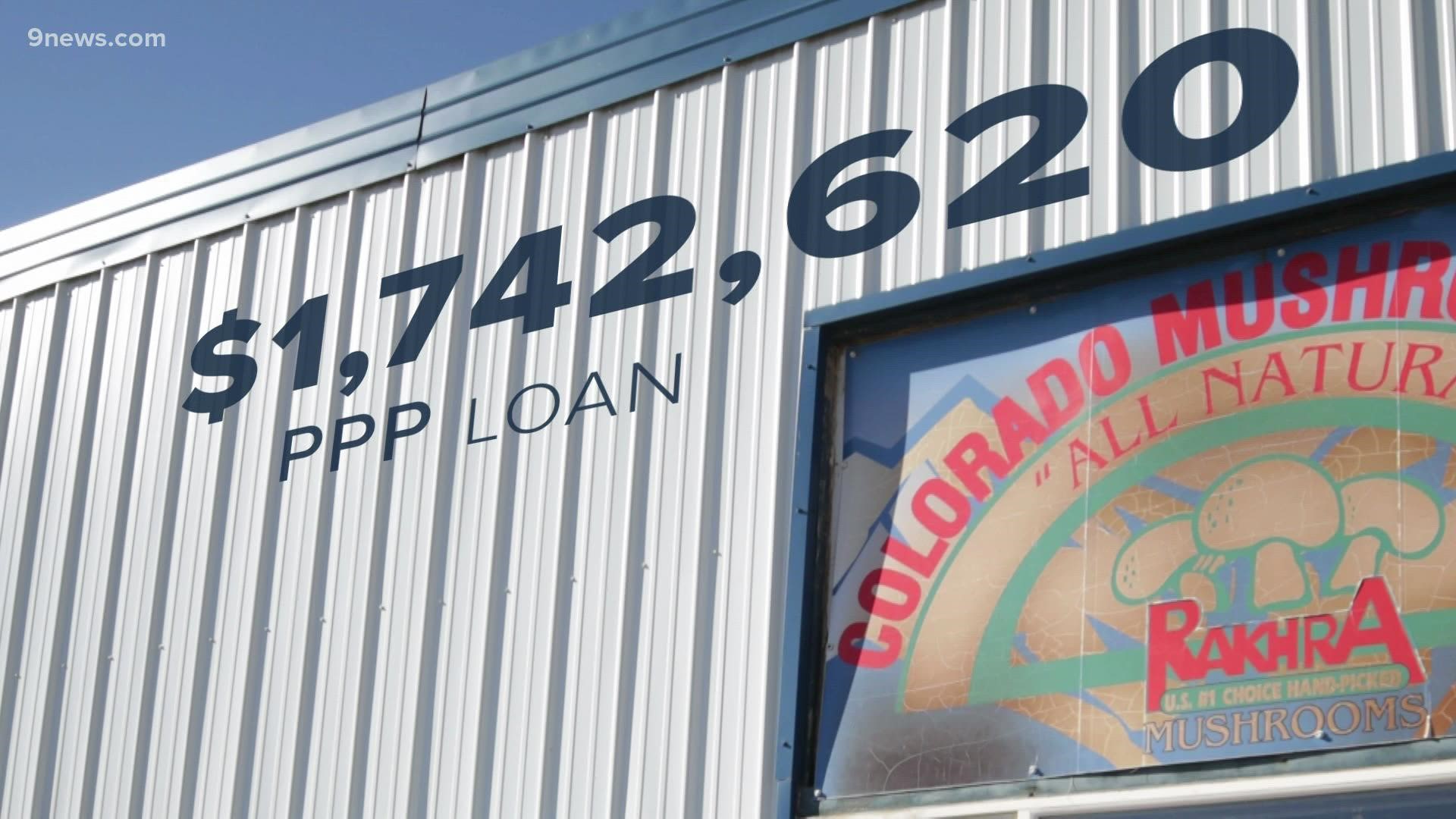DENVER — A 9Wants to Know investigation found that more than 150 Colorado companies and individuals who owed millions in back taxes still qualified for federal pandemic relief loans.
You can read the full investigation at the link below but here are nine takeaways:
1. Companies and people benefitted from a system they didn’t routinely contribute to. 9Wants to Know found at least 161 Colorado companies and individuals who collectively owed millions in state back taxes still qualified for federal pandemic relief loans through the Paycheck Protection Program (PPP).
2. The government gave these entities millions more than they owed. 9Wants to Know found Colorado is owed more than $6.6 million in delinquent taxes but these entities were paid $13.2 million through government assistance. The 9Wants to Know investigation found more than half of the businesses and people who were delinquent on their taxes were paid more than they owed. Typically, entities were paid $2,041 more than they owed.
3. A Colorado mushroom farm owes the most and got the most. The Colorado Mushroom Farm, based in Alamosa, is the top debtor and owes $519,756.93 in back-taxes. PPP loan data reviewed by 9Wants to Know shows the company got two loans totaling more than $1.7 million in 2020. Baljit Nanda, the owner, said the money allowed him to retain more than 200 employees.
4. The government issued federal tax liens to some of the companies with state tax delinquencies. Even before the PPP money came in, Colorado Mushroom Farm had a pattern of problems. The IRS issued a $824,518.23 federal lien against Nanda in October 2020. The document shows Nanda did not pay enough taxes in 2017 and 2018.
5. Some entities that were delinquent in July paid off their debt by October. Thirteen of these 161 companies and people that received PPP funding and were delinquent on their taxes in July are no longer delinquent, according to an October analysis. This includes AfterOurs, an urgent care company that received $867,197.00 in federal PPP funding -- the second-highest payout among the companies that were paid and were delinquent on their taxes. Chris Rehm runs the company. Rehm said he would have shut down and had to lay off 65 workers without the money. Rehm said they spoke with the IRS before getting the PPP money and everything was above board. The company is now on a payment plan.
6. A government spending watchdog said there should have been more oversight before this money was distributed. Tim Stretton, director of the congressional oversight initiative at the Project On Government Oversight, said more background checks into the tax history of applicants should have been in place to prevent delinquent taxpayers from receiving relief money. He said these businesses and people are benefitting from a system that they don’t contribute to.
7. The feds said past tax history was not a factor in who got PPP money. Christopher Chavez, regional communications director for the U.S. Small Business Administration, said in an email it was within the rules for delinquent taxpayers to get the money. He said PPP was designed to help all businesses survive the pandemic, regardless of if someone owed taxes.
8. Those who received billions of taxpayer dollars from PPP do not need to repay the loans. A 9Wants to Know analysis of SBA data shows 56% of the $15.1 billion distributed to Colorado companies have been forgiven. In other words, businesses don’t need to worry about paying back $8.4 billion they received through PPP.
9. Typically, each entity still owes thousands of dollars in delinquent taxes. Of the 148 companies and people that are still delinquent, the median amount owed is $30,396. Sixty-one companies typically paid off $2,193 taxes since July. Sixty-six companies added delinquent taxes to their tab -- typically by $1,351.
See more on how 9Wants to Know conducted this data analysis here.
If you have a tip about how relief funds were used in your community, please reach out to the reporters on this story.
Reach investigative reporter Zack Newman through his phone (303-548-9044). You can also call or text securely on Signal through that same number. Email: zack.newman@9news.com.
Contact investigative reporter Jeremy Jojola via his email: jeremy@9news.com
SUGGESTED VIDEOS: Investigations from 9Wants to Know

